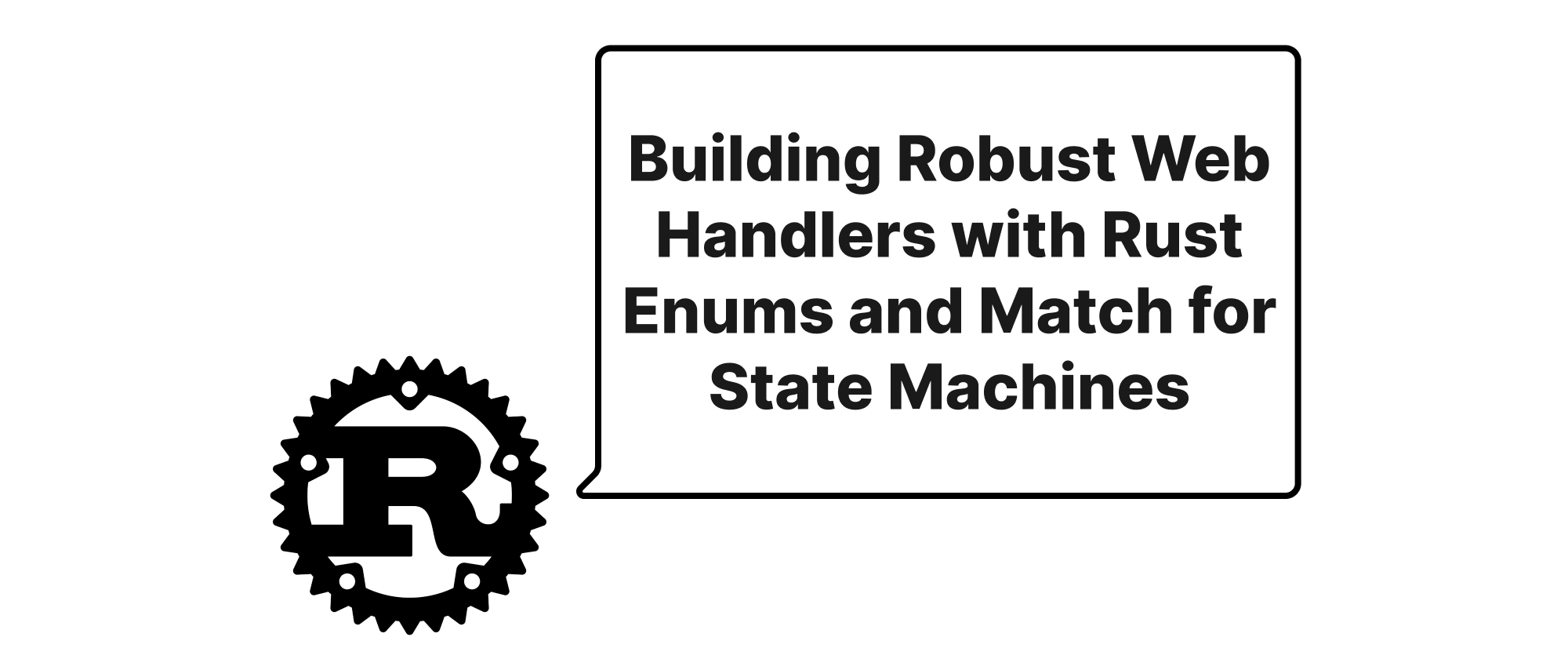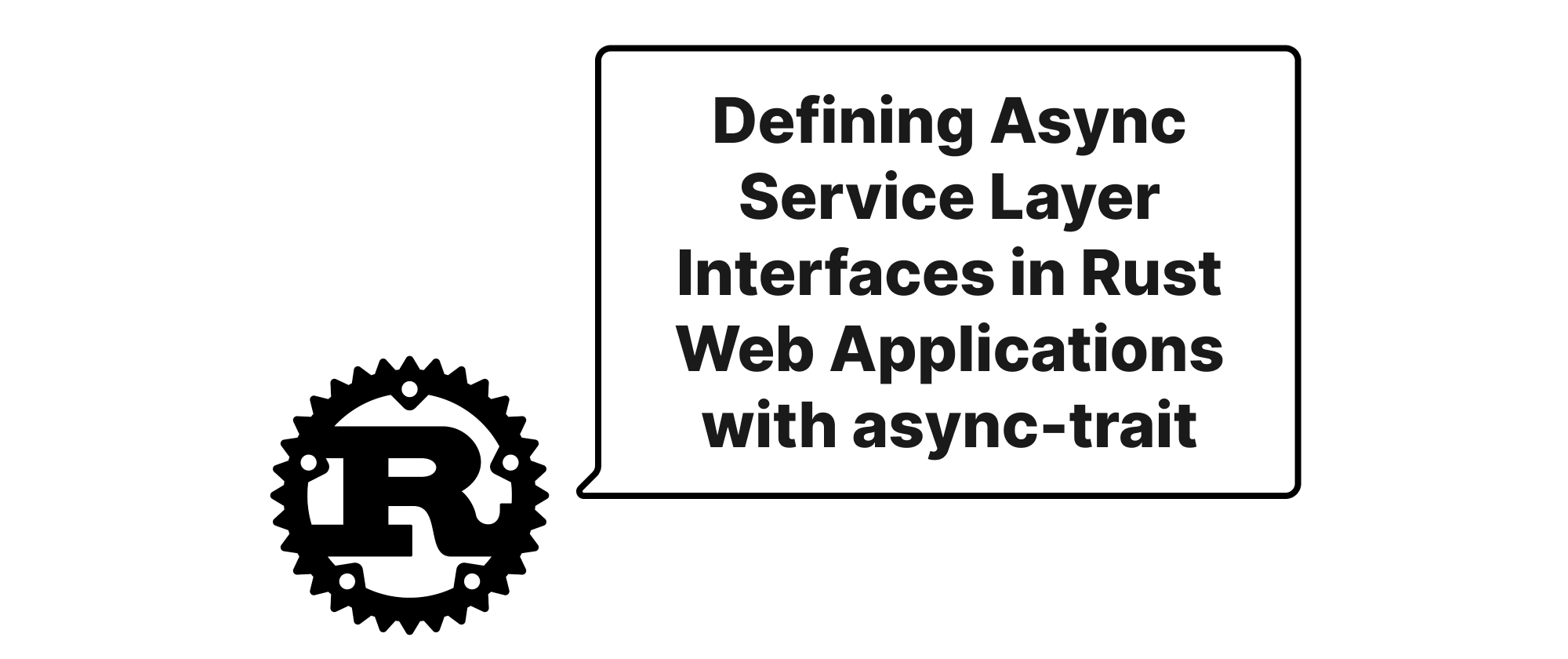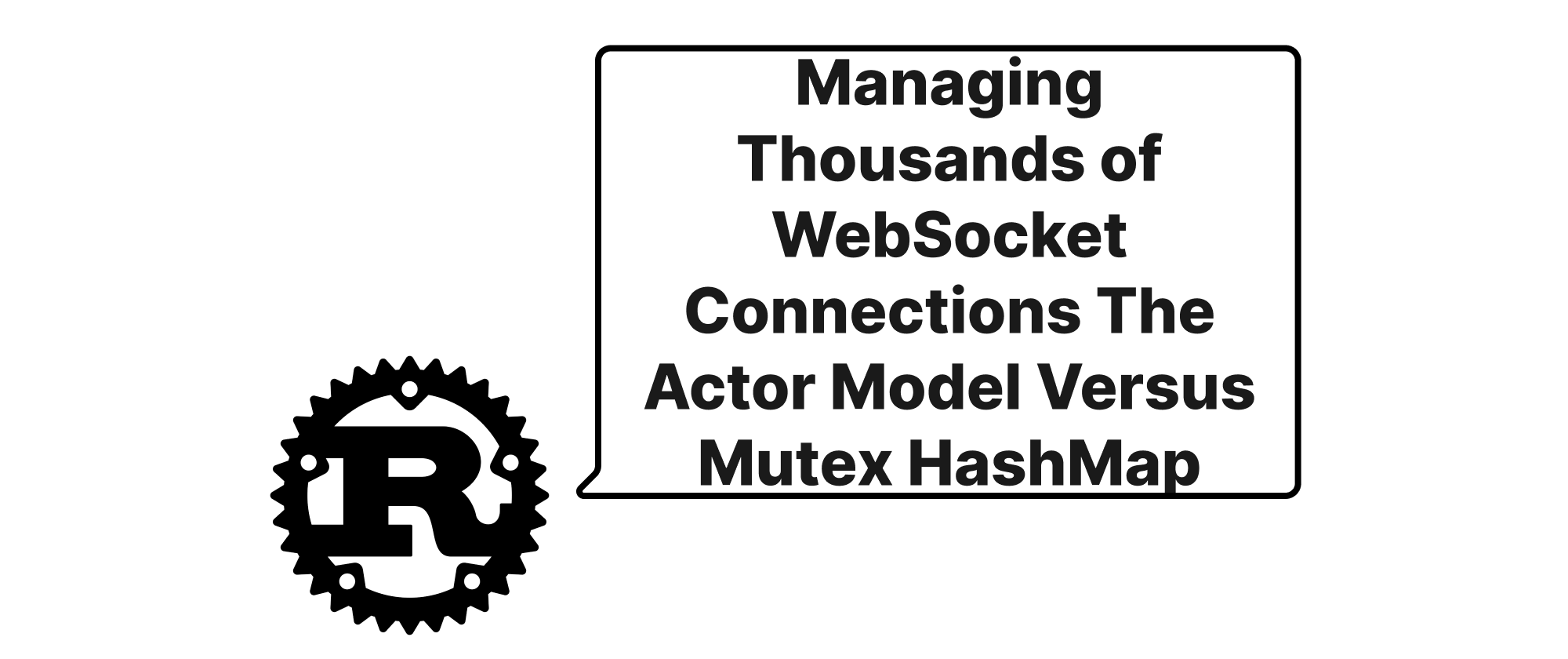Building Robust Web Handlers with Rust Enums and Match for State Machines
Emily Parker
Product Engineer · Leapcell

Introduction
In the world of web development, handling complex user interactions or multi-step processes often boils down to managing different states. Imagine a user onboarding flow, an order processing pipeline, or even a simple form submission that goes through various validation stages. Allowing these processes to transition between states gracefully and predictably is crucial for a smooth user experience and a robust backend. Without a structured approach, managing these state changes can quickly lead to spaghetti code, impossible-to-track bugs, and a perpetually frustrating development experience. This is where the concept of a state machine shines, providing a formal model for computation that tracks and responds to specific states. Rust, with its powerful enum and match constructs, offers an exceptional way to implement these state machines in web handlers, leading to more maintainable, error-resistant, and understandable code. This article will delve into how to leverage these Rust features to build robust state machines within your web applications.
Core Concepts
Before we dive into implementation details, let's clarify some core concepts that are fundamental to understanding state machines in Rust web handlers.
-
Enum (Enumeration Type): In Rust, an
enumallows you to define a type that can be one of a few different variants. Each variant can optionally hold data of different types and amounts. This makesenumideal for representing distinct states, where each state might carry specific contextual information.enums are a core feature for Rust's powerful type system and pattern matching capabilities. -
Match Expression: The
matchexpression in Rust is a control flow construct that allows you to compare a value against a series of patterns and execute code based on which pattern matches. It's exhaustive, meaning that you must cover all possible cases for the type you're matching against (unless explicitly opted out with_). This exhaustiveness check at compile-time is a powerful safety net, ensuring that no state is left unhandled. -
State Machine: A state machine is a mathematical model of computation that describes how a system behaves when it is in a particular state and how it changes from one state to another based on external inputs or events. It has a finite number of states, transitions between these states, and actions performed within a state or during a transition.
-
Web Handler: In the context of a web application built with a framework like Axum, Actix-Web, or Warp, a web handler (or route handler) is a function that receives an incoming HTTP request, processes it, and generates an HTTP response. These handlers are the entry points for external interaction with your application logic.
Implementing Robust State Machines
Implementing a state machine within a web handler using Rust's enum and match provides unparalleled safety and clarity. The enum defines the possible states, and match dictates how the system transitions and behaves in response to events or requests.
Let's consider a practical example: a multi-step user registration process.
Scenario: User Registration Process
Our registration process has the following states:
Initial: The user has just started the registration.ProfileDetails: The user has provided their basic profile information (e.g., name, email), and we need to validate it.AccountConfirmation: The user's profile details are valid, and we're waiting for email confirmation.Completed: The user has successfully confirmed their account.
And the following events/actions:
- Submit initial form
- Submit profile details
- Confirm email link
Defining the States with enum
First, let's define our states using an enum. Each state might hold relevant data.
#[derive(Debug, PartialEq)] enum RegistrationState { Initial, ProfileDetails { user_id: String, email: String, full_name: String, }, AccountConfirmation { user_id: String, email: String, token: String, }, Completed { user_id: String, }, // We could add PendingValidation, Rejected, etc. for more complex flows }
Here, ProfileDetails and AccountConfirmation variants carry data pertinent to their respective states. This allows rich contextual information to be associated directly with the current state.
Handling Transitions with match in a Web Handler
Now, let's imagine a web handler that processes registration requests. We'll simulate storing the current state in a database or session. For this example, we'll use a simple in-memory HashMap to represent our "session store" for demonstration purposes.
use std::collections::HashMap; use std::sync::{Arc, Mutex}; use axum::{ extract::{Path, State}, http::StatusCode, response::{IntoResponse, Html}, Json, }; use serde::{Deserialize, Serialize}; // For request/response bodies // A common state for our Axum handlers type AppState = Arc<Mutex<HashMap<String, RegistrationState>>>; // Request body for submitting initial details #[derive(Debug, Deserialize)] struct SubmitProfileDetails { email: String, full_name: String, } // Request body for confirming account #[derive(Debug, Deserialize)] struct ConfirmAccount { token: String, } // Response body for state updates #[derive(Debug, Serialize)] struct StateResponse { current_state: String, message: String, } // Example: Simulating a web handler for processing registration steps async fn process_registration_step( Path(user_id): Path<String>, State(app_state): State<AppState>, Json(payload): Json<serde_json::Value>, // Using generic Value for demonstration ) -> impl IntoResponse { let mut store = app_state.lock().unwrap(); let current_state = store.entry(user_id.clone()) .or_insert_with(|| RegistrationState::Initial); // This is where the state machine logic comes alive with `match` let (next_state, response_message) = match current_state { RegistrationState::Initial => { // Attempt to transition from Initial to ProfileDetails if let Ok(details) = serde_json::from_value::<SubmitProfileDetails>(payload) { // Simulate saving profile details and generating a confirmation token let new_state = RegistrationState::ProfileDetails { user_id: user_id.clone(), email: details.email.clone(), full_name: details.full_name, }; (Some(new_state), "Profile details submitted. Please confirm your email.".to_string()) } else { (None, "Invalid profile details provided.".to_string()) } }, RegistrationState::ProfileDetails { user_id: current_id, email, .. } => { // Attempt to transition from ProfileDetails to AccountConfirmation if let Ok(confirm) = serde_json::from_value::<ConfirmAccount>(payload) { // Simulate validating the token (e.g., against a stored value for this user/email) if confirm.token == "correct_token_for_email_confirmation" { // Replace with real validation let new_state = RegistrationState::AccountConfirmation { user_id: current_id.clone(), email: email.clone(), token: confirm.token, }; (Some(new_state), "Account awaiting email verification.".to_string()) } else { (None, "Invalid confirmation token.".to_string()) } } else { (None, "Waiting for email confirmation.".to_string()) } }, RegistrationState::AccountConfirmation { user_id: current_id, token, .. } => { // Simulate an external event (e.g., clicking email link with correct token) // For this example, if the current token matches the payload token, we complete if let Ok(confirm) = serde_json::from_value::<ConfirmAccount>(payload) { if confirm.token == *token { // Already confirmed and matching the stored token let new_state = RegistrationState::Completed { user_id: current_id.clone() }; (Some(new_state), "Registration complete!".to_string()) } else { (None, "Invalid confirmation details for this stage.".to_string()) } } else { // If the user tries to submit something else at this stage (None, "Registration requires account confirmation.".to_string()) } }, RegistrationState::Completed { .. } => { (None, "User registration already completed.".to_string()) }, }; if let Some(new_state) = next_state { let state_name = format!("{:?}", new_state); *current_state = new_state; (StatusCode::OK, Json(StateResponse { current_state: state_name, message: response_message, })).into_response() } else { // No state change, but provide feedback based on the match logic let state_name = format!("{:?}", current_state); (StatusCode::BAD_REQUEST, Json(StateResponse { current_state: state_name, message: response_message, })).into_response() } }
Explanation and Benefits
- Clear State Definition: The
RegistrationStateenum explicitly defines all possible states, making the system's behavior immediately understandable. - Exhaustive Pattern Matching: The
matchexpression forces us to consider everyRegistrationStatevariant. If we forget a variant, the Rust compiler will issue an error, preventing unhandled states at runtime. This is a huge compile-time safety guarantee. - State-Dependent Logic: Within each
matcharm, the logic is specific to that particular state. The system correctly identifies what kind of input is expected and what transitions are allowed from the current state. Incorrect actions for a given state (e.g., trying to confirm an email when only initial details have been submitted) can be gracefully rejected. - Extracting Data from States: Using pattern matching, we can easily extract relevant data stored within a state variant (e.g.,
user_id,emailfromProfileDetails). - Maintainability: As the registration process evolves, adding a new state or modifying a transition is localized to the
enumdefinition and the correspondingmatcharm, minimizing ripple effects. - Readability: The code structure naturally reflects the flow of the state machine, making it easier for new developers to understand and contribute.
Application Scenarios
This pattern is incredibly versatile and applicable to many web handler scenarios:
- Order Processing:
PendingConfirmation,Processing,Shipped,Delivered,Cancelled. - Approval Workflows:
Draft,SubmittedForReview,Approved,Rejected. - API Paginators:
InitialLoad,LoadingNextPage,Complete. - User Onboarding:
PendingProfile,PendingVerification,Active.
Conclusion
By harnessing Rust's enum and match expressions, developers can construct highly robust and maintainable state machines directly within their web handlers. This approach provides compile-time guarantees against unhandled states, offers unparalleled clarity in defining state-specific logic, and ultimately leads to more resilient and understandable web applications. Leveraging these core Rust features to manage complex workflows will significantly improve the safety and maintainability of your backend services.


